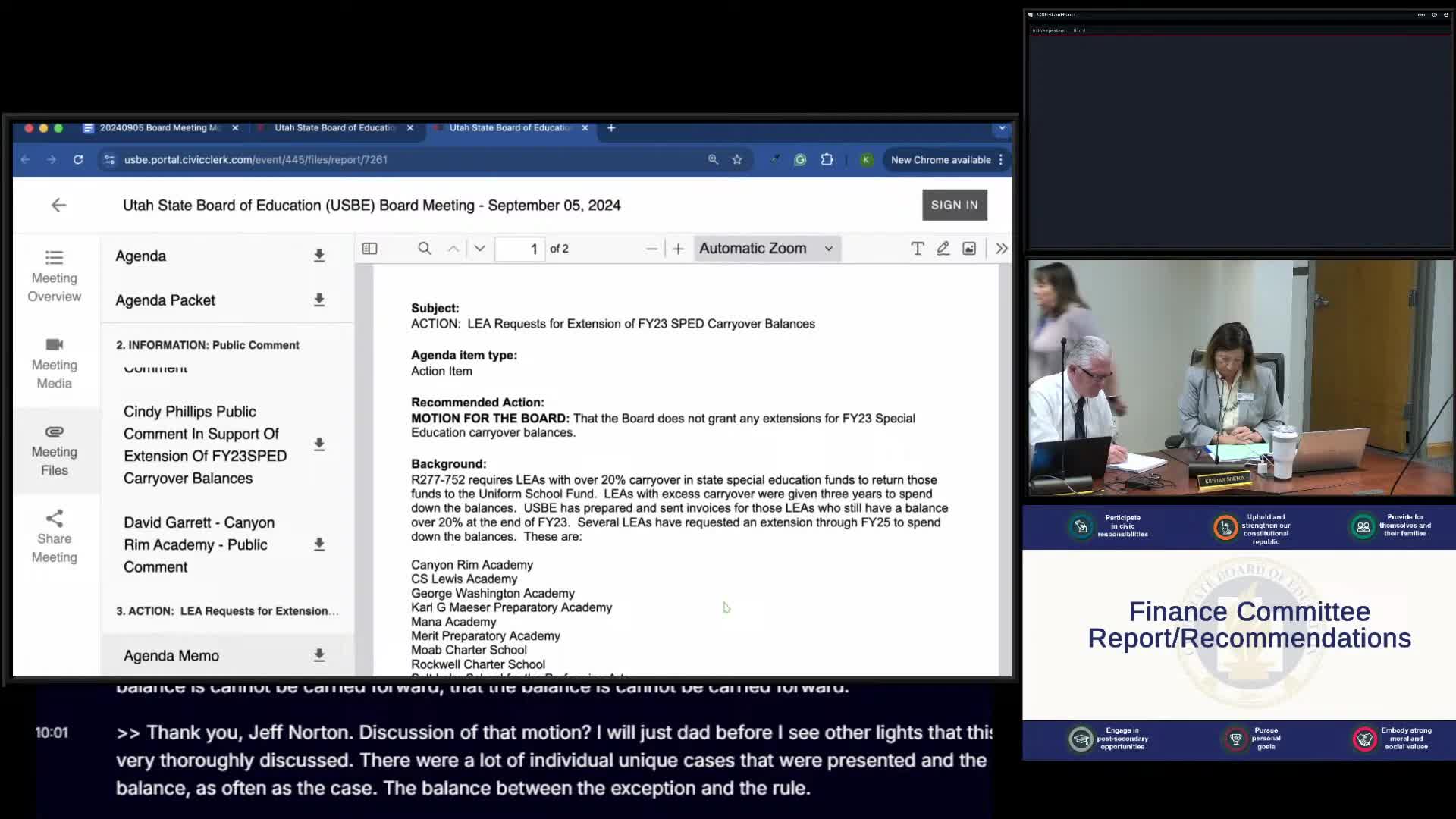Utah State Board denies extensions for FY23 special-education carryover balances
Get AI-powered insights, summaries, and transcripts
Subscribe
Summary
The Utah State Board of Education voted to refuse requests from local education agencies for extensions to carry forward fiscal year 2023 special-education balances, citing prior notice and a move toward a lower carryforward cap.
SALT LAKE CITY — The Utah State Board of Education on Sept. 5 declined requests from several local education agencies to extend deadlines for carrying forward FY23 special-education balances.
Board members voted to deny the extensions after staff and board discussion about fairness, notification and the need to get unused funds back into public education. The board’s action follows a multi-year effort to reduce carryforward amounts and to direct dollars toward intensive services for students with disabilities.
The board heard that many charter operators had not spent all FY23 special-education dollars because they had been cautious about using funds on expenditures that might not be allowable. Deputy Superintendent of Operations Scott Jones told the board that the carryforward requests in part reflected deliberate fiscal management: “I really think that’s part of the reason that you see these requests … they don't spend money just to spend money,” Jones said. Staff also confirmed the state invoices any unapproved carryforward amounts and the funds are recycled into public education.
Board members pressed staff on whether the unspent dollars could be tracked or redirected toward intensive special-education services. Member Carrie urged a “concerted effort with our sped staff, our financial staff to work with these schools,” asking for help to identify meaningful uses so the funds would be used in a timely way.
After discussion, the board voted to deny extensions. The record shows the motion to refuse extensions was carried by the board and the chair directed staff to proceed with invoicing and with continued oversight of carryforward levels. The board also noted a policy timetable that will further reduce the allowable carryforward from 20% to 10% in a future cycle and urged LEAs to use the remaining cushioning funds responsibly in the interim.
The vote returns money into state public-education budgets for reallocation; staff told members there is an audit trail for returned funds and that carryforwards are already being tracked so that dollars can be aligned with other needs in public education.
Board members said they plan additional follow‑up with finance and special-education staff to explore ways to match leftover balances to unmet intensive needs in special education.
